Insights

2024: The Legal Year in Review — and what lies ahead for 2025
This article from the experts at LexisNexis® Practical Guidance, covers the most significant legal reforms in 2024 and further changes in 2025 that we’re watching closely. This year’s developments have set the stage for further advancements in 2025, offering both challenges and opportunities for the legal profession. 2024: a Year of Transformation 2024 has been a year of significant legislative and regulatory changes...

Headlines from the Finance COP: UNFCCC Climate Change Conference COP29, Baku
Introduction The 29th Conference of the Parties (COP29) to the UN Framework Convention on Climate Change (UNFCCC) took place in Baku, Azerbaijan, from 11 to 24 November 2024, concluding 35 hours after its scheduled closing date due to intense negotiations. Key headlines included: The Baku Climate Unity Pact , featuring decisions on a new climate finance goal and operationalising an international carbon market under...
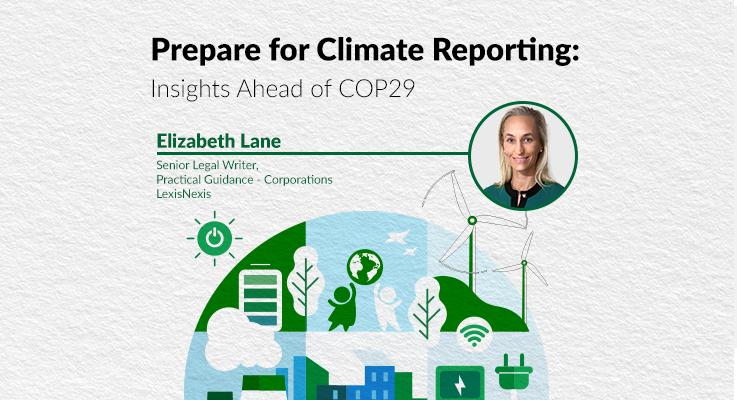
In-house counsel play a leading role in preparing businesses for climate reporting
Over the past several years, there has been a seismic shift in shareholder and stakeholder expectations as to how businesses manage climate risk along with increasing pressure for companies to provide a higher degree of transparency in relation to how they manage their climate risks and opportunities. At a global level, the International Sustainability Standards Board released the global sustainability standards relating...

Privacy Law Shake-Up: Is Your Business Ready?
As Australia undergoes significant changes to its privacy laws, it’s crucial for businesses of all sizes to prepare. Following a multi-year review, the government is proposing amendments to the Privacy Act that could reshape how organisations manage personal information. With harsher penalties on the horizon, now is the time to act. Why Privacy Law Changes Matter The proposed reforms will impact the way businesses...

The HomeBuilder program – a recap
Writer: John Darmanin, Practical Guidance Senior Legal Writer – Property module The COVID-19 pandemic is affecting economies all over the world and GDP growth among OECD countries slowed to 0.7% in the fourth quarter of 2020. In that time, the Group of Seven economies (Japan, Canada, the United Sates, the United Kingdom, Germany, Italy and France) experienced GDP growth of only 0.8% and in an even worse result, GDP...
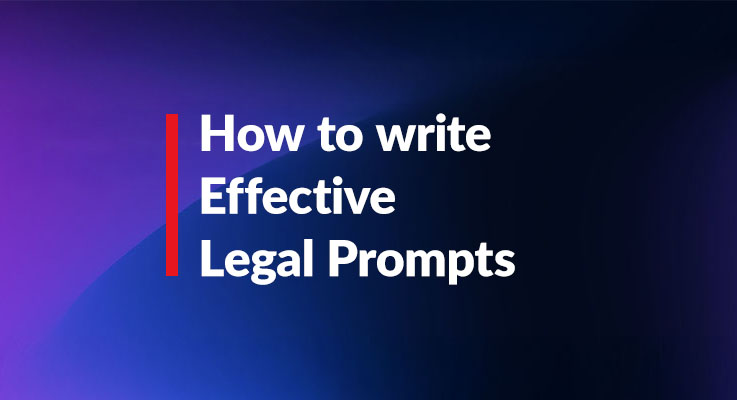
How to Write Effective Legal AI Prompts
By Jake Nelson | Sr. Product Manager, LexisNexis ® This article was written by Jake Nelson | Sr. Product Manager, LexisNexis in our US office. Lexis+ AI ® was launched in the US in October 2023, and Jake has written this article with the benefit of seeing the generative AI solution in the market for a while. We believe that this article is valuable to Australian lawyers as they begin to use generative AI in their...

Insights from industry experts to mark 50 years of competition and consumer law in Australia
The 24 th of August marked 50 years since royal assent was granted by the Governor-General for federal competition and consumer legislation in Australia, initially through the Trade Practices Act 1974 ( TPA ) and later through the Competition and Consumer Act 2010 ( CCA ). To commemorate this milestone, we asked our competition and consumer law experts and esteemed colleagues for their thoughts and reflections on the...

Rolling in the deepfakes: Generative AI, privacy and regulation
Iris Rad and Alec Christie CLYDE & CO Introduction Artificial intelligence (AI) is increasingly permeating all aspects of modern society and commerce: from use in automated decision-making processes to facial recognition and generative AI. At the same time, the rapid advancement in AI technology, such as deep learning, has led to an increased pervasiveness and proliferation of misinformation through deepfakes, a...

Side hustles in the digital age: legal implications for employers
Samuel Ellemor SHARROCK PITMAN LEGAL Cash is tight and the side hustles are in fashion. With rising interest rates, record-high house prices, and growing cost of living pressures, employees are looking to make extra money beyond their day job’s pay and are turning to the online gig economy to find it. Whether it be freelancing on Fiverr , running an e-commerce website from their bedroom or making salacious videos...
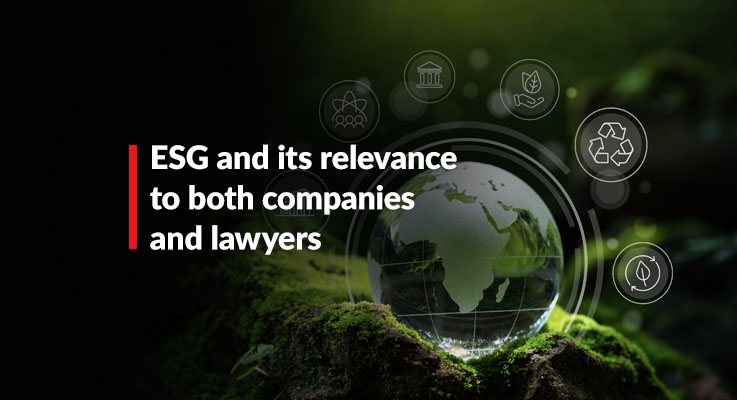
ESG and its relevance for both companies and lawyers
How can you understand what ESG (Environment, Social and Governance) is and how it is relevant to your organisation and to your legal team? What can you do to ensure that your ESG policies are legitimate and make a real impact? The changing regulatory landscape and significance of ESG policies in the public eye are forcing organisations to reconsider their implementation of ESG. So, what are the fundamentals of Environmental...
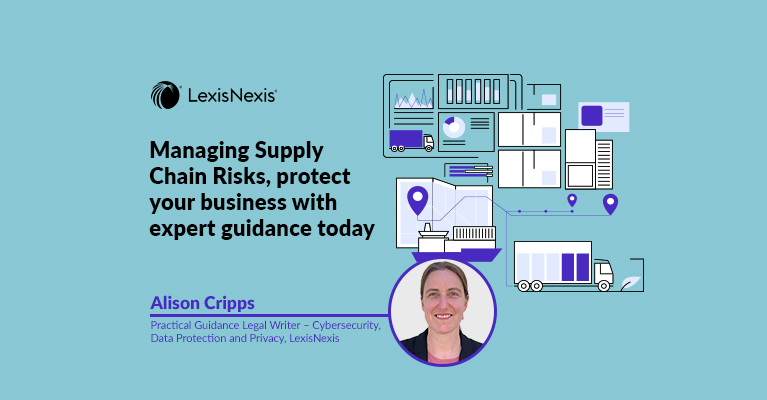
Navigating Technology Supply Chains: Mitigating Outsourcing Risks
In today’s digital landscape, businesses rely on technology to drive operations and maintain a competitive edge. However, this reliance often involves complex supply chains and outsourcing arrangements that introduce significant risks if not managed effectively. Imagine a network of suppliers, manufacturers, and service providers working together to deliver products and services globally. While outsourcing can provide...
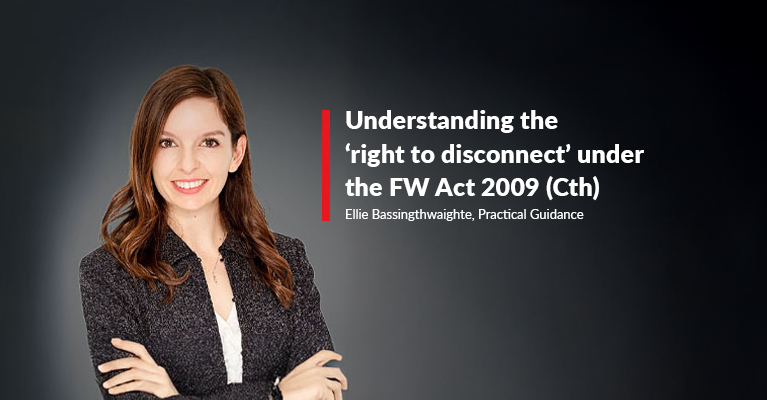
Understanding the ‘right to disconnect’ under the Fair Work Act 2009 (Cth)
Ellie Bassingthwaighte Senior Legal Writer - Employment for LexisNexis ® Practical Guidance, is an experienced workplace lawyer who has worked at the Fair Work Commission, before practicing in employment law and industrial relations since 2014. In this article, she discusses the key considerations for employers and employees under the new worker rights recently enshrined under the Fair Work Act 2009 (Cth) (FW Act) ...
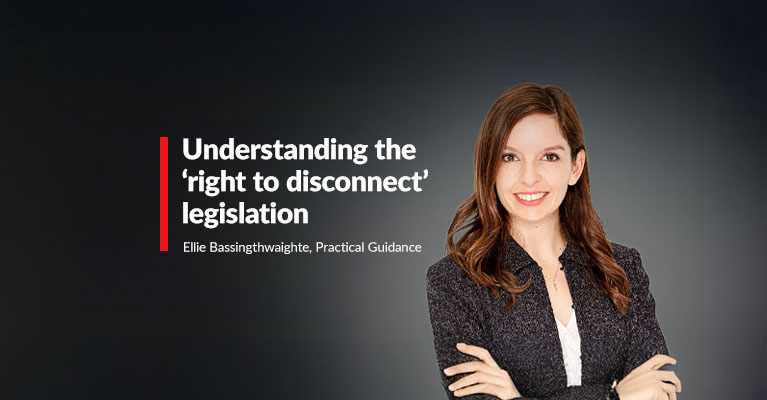
Understanding the New 'Right to Disconnect' Legislation: What Employers and Employees Need to Know
Ellie Bassingthwaighte, Senior Legal Writer- Practical Guidance Employment Introduction of the Right to Disconnect Starting 26 August 2024, Australian employees will gain a new 'right to disconnect' following significant amendments to the Fair Work Act 2009 (Cth) (FW Act). This new legislation aims to establish clear boundaries around out-of-hours work communication. For small business employers (as defined in section...
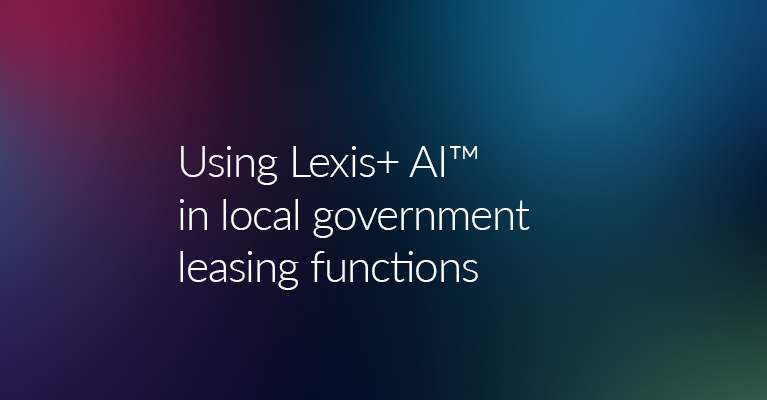
Using Lexis+ AI®︎ in local government leasing functions
By Kate Bartlett, Senior Legal Writer, LexisNexis ® Australia, Practical Guidance, Property Local government officers responsible for leasing functions are required to use their specialist leasing skills and experience to assess leasing proposals, compile their analysis of leasing proposal into reports to council about leasing decisions to be made, and to make recommendations to the council about those leasing decisions...
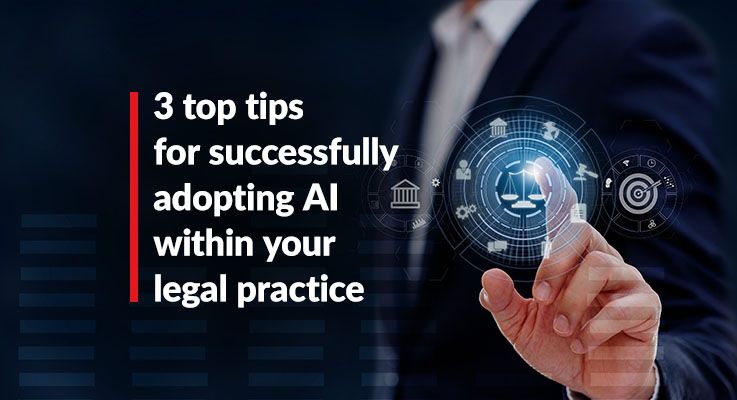
Three Top Tips for successfully adopting AI within your legal practice
As curiosity grows within the legal profession around the benefits and pitfalls of Artificial Intelligence (AI) and its impact on the industry, you may already be planning to invest in ways to incorporate AI into your practice. Increasing efficiency and reducing the amount of unbillable time spent on case law research is a great reason for legal professionals to invest in technology. But investing in AI is only one...

Machines in Our Image: The Need for Human Rights in the Age of AI
Q&A with Authors Edward Santow and Daniel Nellor Machines in Our Image: The Need for Human Rights in the Age of AI is not an academic text but an essential read for anyone who wants to better understand AI, and how to make it work for everyone. We took the opportunity to ask Edward Santow and Daniel Nellor a few questions about the book. Q: What inspired you to write this book? ES: A decade ago, the NSW Police...
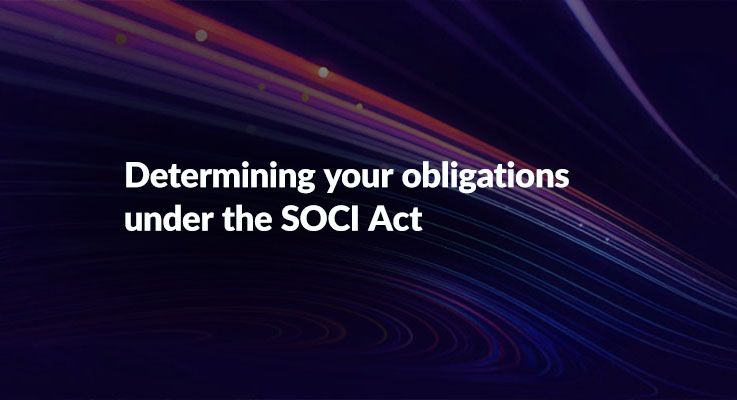
Determining your obligations under the SOCI Act
A crucial step for organisations in the wake of recent events We are living in a world where a ‘simple’ software hiccup brings entire nations to a grinding halt. At least that’s the reality we faced during the recent ‘CrowdStrike Incident’ – a digital disaster that left airlines grounded, hospitals scrambling and financial institutions in disarray. It was a wake-up call that echoed across the globe, reminding us just...
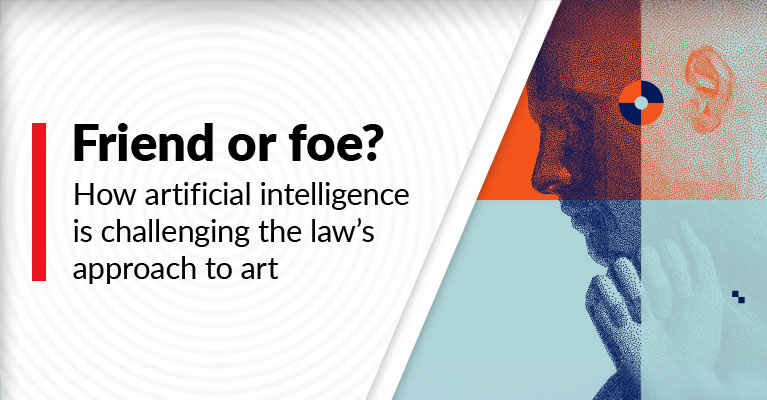
Friend or foe? How artificial intelligence is challenging the law’s approach to art
Introduction The law has always played catch up with technological change. With the evolvement of artificial intelligence (AI), that sentiment is alive and well. AI is “computer technology that aims to simulate intelligent human behaviour”. AI’s relationship to the law is particularly provocative in the field of art. When it comes to the authentication of artworks, connoisseurship, provenance documentation and scientific...
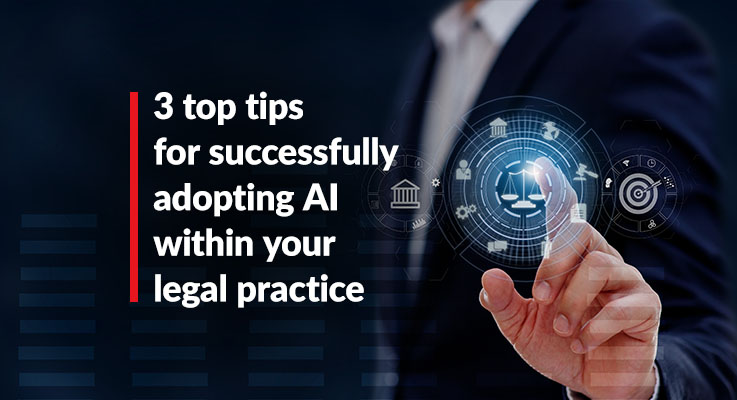
Three Top Tips for successfully adopting AI within your legal practice
As curiosity grows within the legal profession around the benefits and pitfalls of Artificial Intelligence (AI) and its impact on the industry, you may already be planning to invest in ways to incorporate AI into your practice. Increasing efficiency and reducing the amount of unbillable time spent on case law research is a great reason for legal professionals to invest in technology. But investing in AI is only one...

How to Select a Responsible AI Business Partner
By Geoffrey D. Ivnik, Esq. | Director of Large Markets, LexisNexis ® This article was written by Geoffrey D. Ivnik, Esq. | Director of Large Markets, LexisNexis in our US office. Lexis+ AI ® was launched in the US in October 2023, and Geoffrey has written this article with the benefit of seeing the generative AI solution in the market for a while. We believe that this article is valuable to Australian lawyers as they...
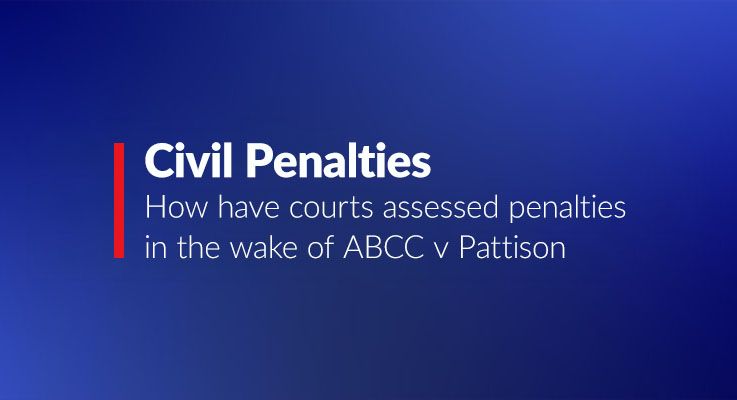
Throwing the book at repeat offenders: how courts have assessed civil penalties since the High Court’s decision in ABCC v Pattinson
When an individual or corporation breaches a civil penalty provision, the responsible regulator may seek to have the court impose a civil penalty, for the purposes of deterring that person (and others) from future contravening conduct. In recent years, the maximum available civil penalties have increased in a wide range of areas. Civil penalties are a powerful tool for regulators to encourage compliance, and businesses...
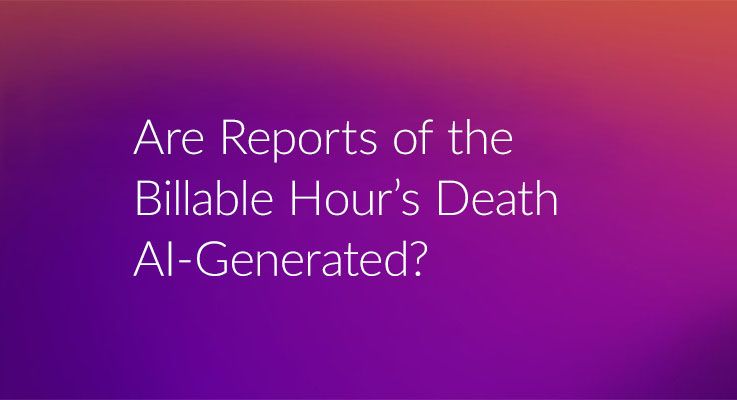
Are Reports of the Billable Hour’s Death AI-Generated?
This article was written by Geoffrey D. Ivnik, Esq. | Director of Large Markets, LexisNexis in our US office. Lexis+ AI ® was launched in the US in October 2023, and Geoffrey has written this article with the benefit of seeing the generative AI solution in the market for a while. We believe that this article is valuable to Australian lawyers as they begin to use generative AI in their legal work with the launch of Lexis...

Employer liability for Psychosocial hazards caused to an employee: Kozarov v Victoria [2022] HCA 12 (Kozarov)
In Kozarov v Victoria [2022] HCA 12 (Kozarov), the High Court decided an employer had a common law duty to take reasonable steps to manage mental health risks inherent to an employee’s job. This duty existed regardless of whether the employee showed warning signs of mental illness. What needed to be done and was not done to avoid Psychosocial hazards? The employee in question, Ms Kozarov, was a solicitor who worked...

Environmental protections and the precautionary principle in Victoria’s native forests
2 Landmark Cases These decisions contribute to the growing body of case law on the much-debated precautionary principle and form part of the environmental movement’s challenging of the State’s native timber industry, raising key questions in relation to its viability and legitimacy. Both cases were brought by environment groups that undertake surveys for native species in Victorian forests. At trial, the plaintiffs...
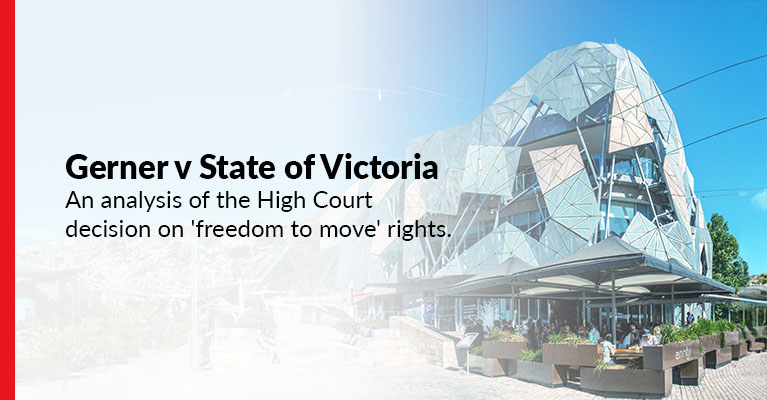
Freedom to move rights during a state of emergency?
Case note: The High Court decision on Gerner v State of Victoria | Adam Parker, LexisNexis Australia Emergency powers provide governmental agencies with the special authority they need to maintain public safety in extraordinary times. However, the decision to impose Lockdown Directions in Victoria during 2020 has had long-lasting and significant impact on many people’s lives. Once the Victorian government declared...